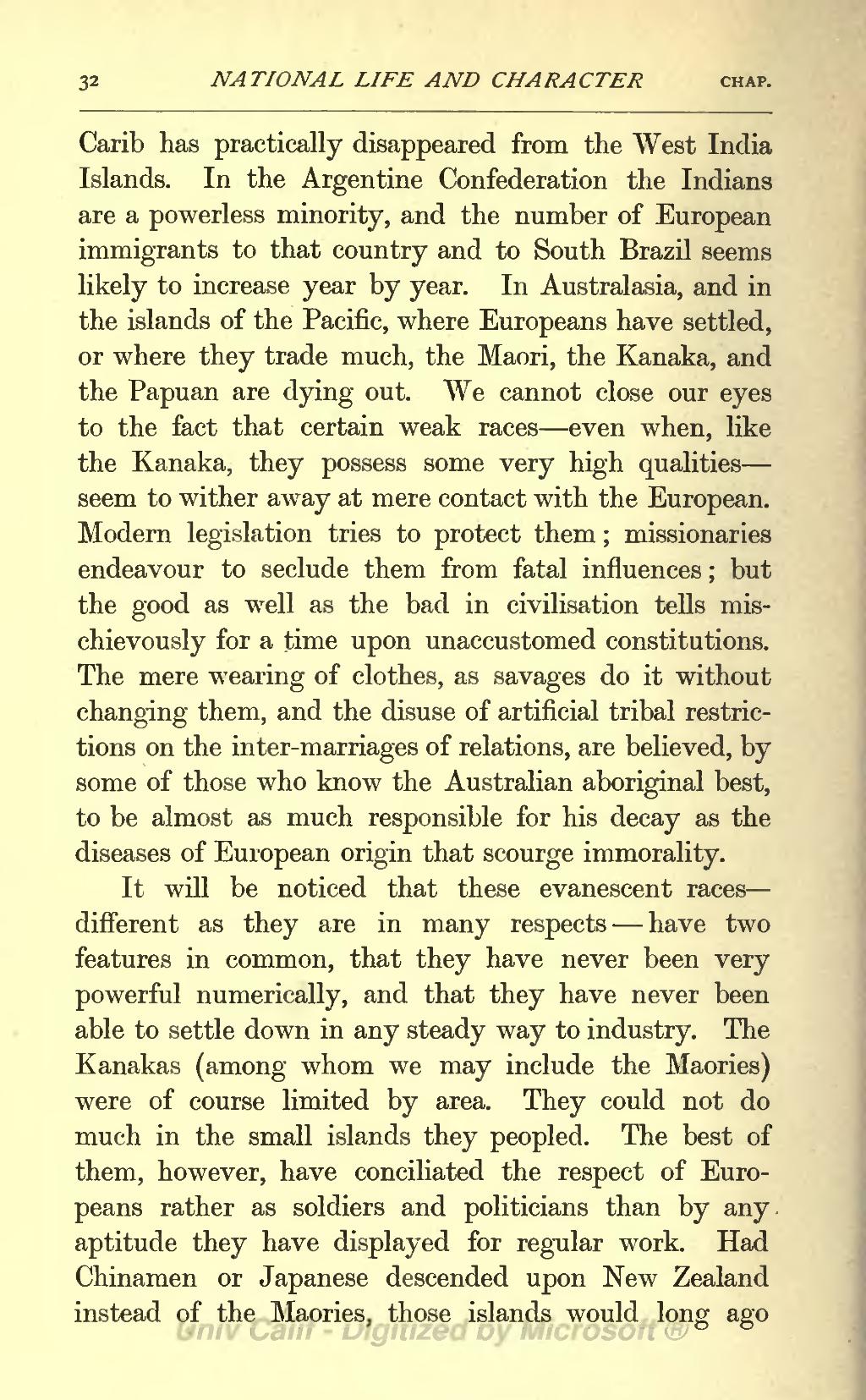Carib has practically disappeared from the West India Islands. In the Argentine Confederation the Indians are a powerless minority, and the number of European immigrants to that country and to South Brazil seems likely to increase year by year. In Australasia, and in the islands of the Pacific, where Europeans have settled, or where they trade much, the Maori, the Kanaka, and the Papuan are dying out. We cannot close our eyes to the fact that certain weak races—even when, like the Kanaka, they possess some very high qualities—seem to wither away at mere contact with the European. Modern legislation tries to protect them; missionaries endeavour to seclude them from fatal influences; but the good as well as the bad in civilisation tells mischievously for a time upon unaccustomed constitutions. The mere wearing of clothes, as savages do it without changing them, and the disuse of artificial tribal restrictions on the inter-marriages of relations, are believed, by some of those who know the Australian aboriginal best, to be almost as much responsible for his decay as the diseases of European origin that scourge immorality.
It will be noticed that these evanescent races—different as they are in many respects—have two features in common, that they have never been very powerful numerically, and that they have never been able to settle down in any steady way to industry. The Kanakas (among whom we may include the Maories) were of course limited by area. They could not do much in the small islands they peopled. The best of them, however, have conciliated the respect of Europeans rather as soldiers and politicians than by any aptitude they have displayed for regular work. Had Chinamen or Japanese descended upon New Zealand instead of the Maories, those islands would long ago

